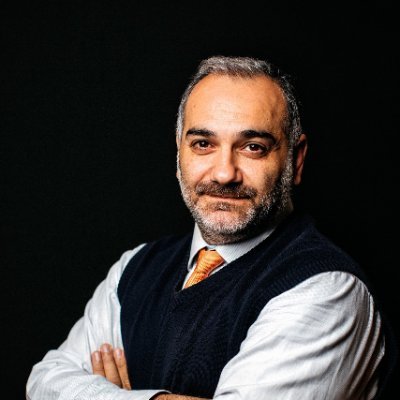By Florence Avakian
NEW YORK — The Zohrab Information Center, after almost two years, returned to its in-person meetings at the Armenian Diocese in New York, and Zohrab Director Dr. Jesse Arlen, welcomed a sizable crowd for a presentation of the book Black Garden Aflame: The Nagorno-Karabakh Conflict in the Soviet and Russian Press, by Dr. Artyom Tonoyan, on November 10. The lecture was also available on Zoom and YouTube.
Arlen called it important to “gather in person to talk, listen, think deeply, and appreciate experts’ presentations on how to engage most effectively with the homeland and Armenian culture. We have had virtual events, but there is something different about getting together in person, after having spent so much time separated from one another.”
Tonoyan began his eye-opening and fascinating talk by discussing the situation post the second Karabakh war in 2020, saying that though Russian President Putin was “interested in tranquility along its southern borders, he was not going to interfere in the Nagorno-Karabakh conflict militarily on the side of its regional ally Armenia.”
Russia has treaty obligations with Armenia, yet those can only be activated if Armenia itself comes under attack, and since Nagorno-Karabakh has been internationally recognized as a part of Azerbaijan, Russia would not get involved. In addition, there were questions of whether Prime minister Nikol Pashinyan had strayed from Russian dependency and was leaning more to the West geopolitically.
However, back in 1988, nationalism and ethnic grievances first reared their heads, the speaker continued. In Sumgait, pogroms and wanton violence raged against mostly Armenian-populated towns by Azerbaijani thugs. Hundreds of Armenians were brutally murdered in Kirovabad, Khojaly, Maragha and Baku by Azerbaijani mobs and troops, resulting in the exodus of Armenians from Azerbaijan.








